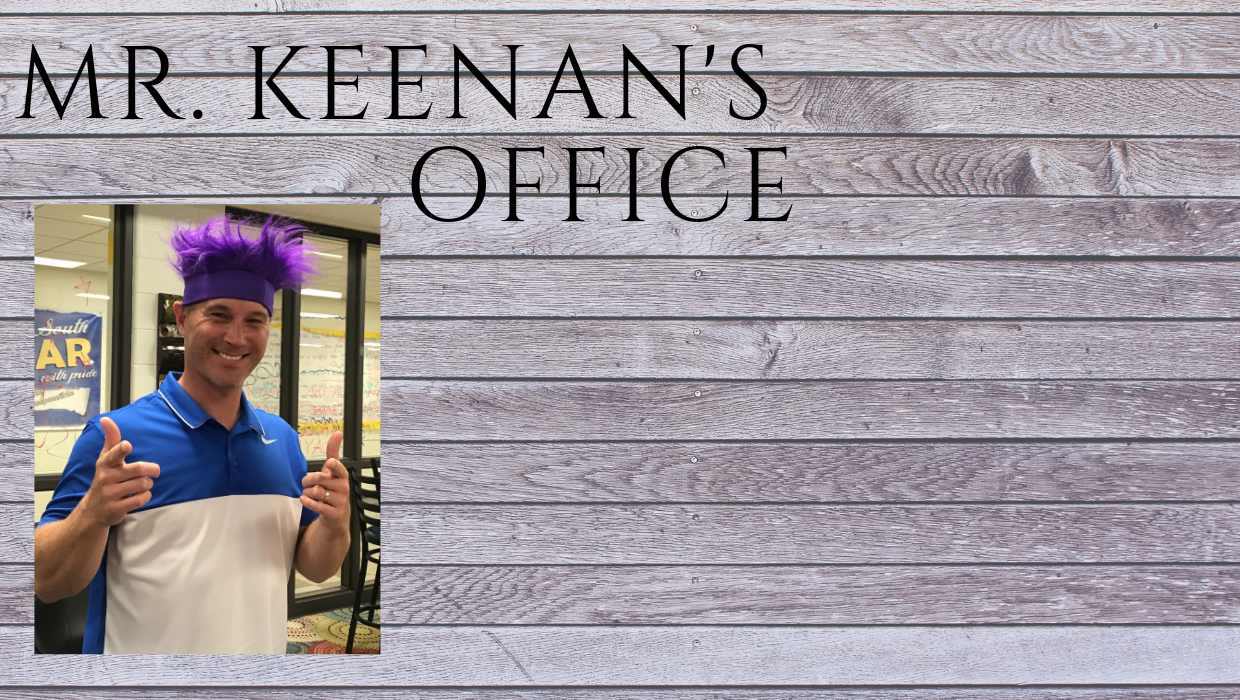I would like to share with you a guest post from Cailin Sendelbach, one of our teachers at South. As a district, we have recently been revisiting our WHY and our PURPOSE. By sharing this with you, it is our hope that you may also reflect not just on your instructional practices but the bigger picture of why you are a teacher and what your purpose is with your students.
A question came to my mind during break: What is the purpose of school? When I was in school, and even throughout my own short teaching career, I always believed that teachers were suppose to teach students what they needed to know to become successful young adults that could contribute to society once we completed our years of schooling. But is that really what teachers do?
After a lot of thought and soul searching, I realized that I AM meant to be a teacher—but I think I’m going about the actual job of teaching the wrong way.
I was always good at school; completing middle school with a 4.0 GPA, I figured that I was prepared for everything life was going to throw at me once I entered high school. Came to find out that they were teaching me how to make it through school with the highest grades possible. With the pressures of standardized tests and current-day teacher evaluations, this isn't difficult to see.
Being “academic” doesn't tell a student much about themselves. It tells them they're good at school—that’s it. They are able to figure out the system. What being "academic" doesn't indicate is whether students can hold healthy relationships in life, make rational decisions in a range of situations, manage money once they get a job, or selflessly give back to the community--all of which, I believe, have a far greater importance than being good at school.
So I started thinking about what the purpose of school should be. School should be a place where students can discover what they love. They should be able to ask questions that matter to them and pursue the answers themselves, with guidance from their peers and adults around them. They should discover what they are passionate about and realize that through those passions, they can make a difference in the community and world they live in. But I don’t believe students are learning these things—at least, they aren’t in my class to the extent that they should be, and I’m deeply ashamed of that.
I don’t want to teach students who are good at school. Instead, I want to create an environment that engages them as learners, fosters creativity, and puts responsibility for learning where it belongs—in the hands of my students. Instead of just rote learning of the science material that the state claims all students must know, I want to use that content to teach skills that will truly benefit my students’ futures. I want my classroom to be an environment that allows my students to get messy and build things; a place where my students learn how to learn and know how they learn best.
I want my students to be able to problem-solve, innovate, and understand the importance of failing repeatedly without thinking they “aren’t smart” or “can’t do it.”. I want my students to collaborate with each other, as well as virtually with students across the globe—which I already have a middle school science classroom in Maine that is willing to test-pilot this with me. Students need to be able to powerfully communicate their ideas and beliefs using print, photography, and video—because this is their world, and I want them to be ready for it.
Instead of introducing each unit with notes that breaks down the concepts they need to know to pass the unit test, I’m going to introduce each unit with a real-world problem or issue that they can solve using the content they need to know. I’m ready to change the teaching paradigm and I’m not afraid to do jump in with both feet. I want to help mold leaders and world-changers in my classroom, not just "smart" kids that are good at school and understand how to work the system.
The area of science is far beyond just learning the concepts of how ocean currents move or how to connect a circuit or how the water cycle works. Science is taking your understanding of these concepts and using them to solve a common problem, to create new ideas and innovate new solutions. Each one of my students can make great changes in the world—but I haven’t given them the opportunity for them to see that power within themselves.
THIS is my purpose in the field of education. Not to educate students about science, but to use science to educate students about the world and their place in it.
